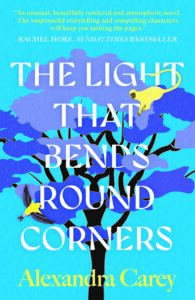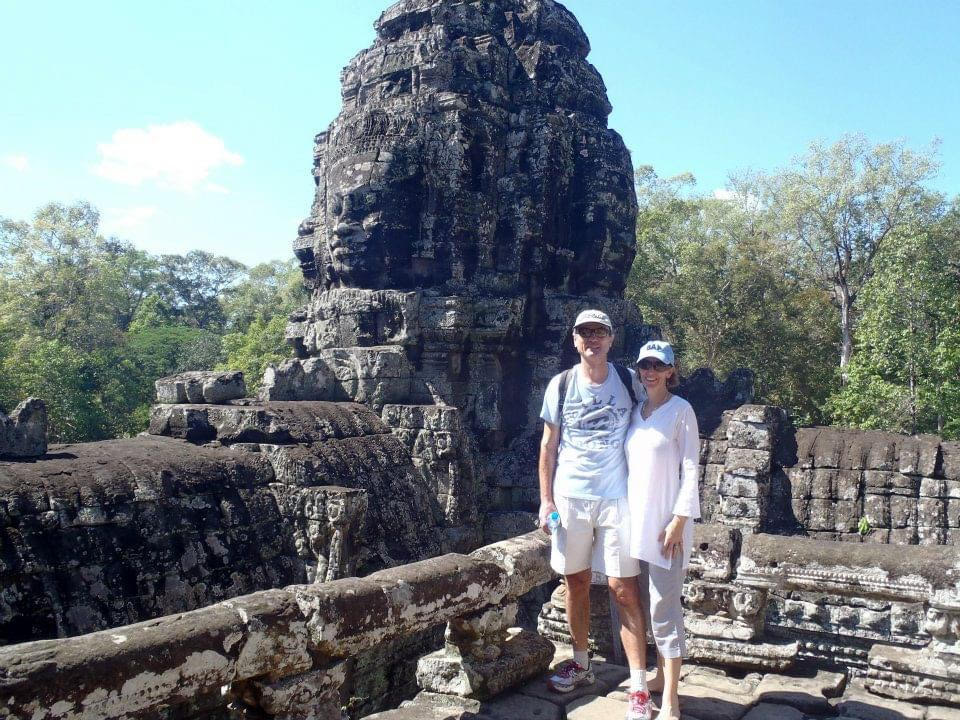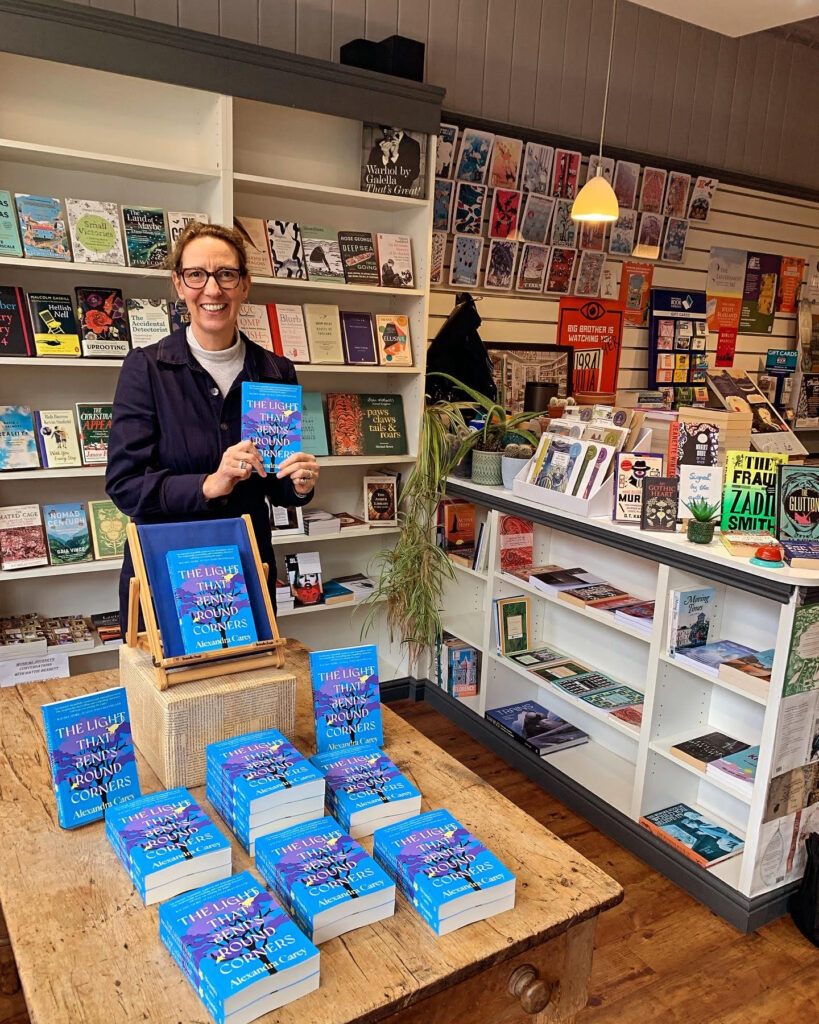I’m very excited to tell fellow trailing spouses about my new novel The Light That Bends Round Corners, which tells the story of the interweaving lives of a British expat woman, Laura, and Mariel, her Filipina maid. The book is both a humorous account of expat life — a kind of 21st century version of “The Durrells” (the TV adaptation of Gerald Durrell’s Corfu Trilogy) — while also exploring more serious themes such as abuse, mental health, and migration.

It’s ultimately a story about love, belonging, and discovery.
Like Laura, I became a trailing spouse in Kuala Lumpur, Malaysia, because my husband was offered a wonderful career opportunity that we couldn’t afford to turn down. (He’s an investment manager and was offered the opportunity to run a small private family firm – for him, the perfect job.) And, like Laura, I found the relocation very challenging. We had two small children aged four and six, and I had always imagined bringing them up in the English countryside — certainly not in a hot and humid city halfway ’round the world full of what I considered multiple dangers.
Like many other expat trailing spouses, the relocation forced me to give up my career (in my case, as a classical music publicist in London). Moreover, at that time, Malaysian law did not allow me to get a work visa. But, as I think is so often the case in these situations, this led to a “pivot” moment for me.
By being forced to move to Malaysia, to do something I really didn’t want to do, I ended up doing the thing I love the most: writing. While living in Kuala Lumpur, I published two children’s books, Ted Ted and the Dhobi Ghats and Ted Ted Trouble in Tokyo, based on family holidays in Mumbai, India and Tokyo, Japan.
The power of hindsight
If I had ranked our move according to the Gupte Scale when we first arrived it would have scored low: 2 for destination, 1 for resources, 2 for timing — a total of 5 out of 15. I didn’t want to bring up my children abroad, I had to shut down my freelance PR consultancy business and wasn’t allowed to work in Malaysia, we had very little support, and the culture shock of adjusting to life in Kuala Lumpur was much more severe than I had anticipated.
We arrived in 2006 initially planning to stay just a year or two. Our first year (on which my newest book is based) was incredibly hard. But, in time, I fell totally in love with the country, and we ended up staying for seven years, only moving back to the U.K. in 2013.
In hindsight, the move to Malaysia ranked pretty highly after all: the destination was challenging yet life-changing (5), the timing was actually perfect because the children were young enough to really appreciate having me at home and they benefitted from attending a fantastic international school (5) — but yes, the support was rubbish (1) because my husband’s job wasn’t with a big corporation so there was no one to guide us and no relocation services.

Repatriation blues
It was almost as hard to move back to the U.K. as it had been to leave it. Supposedly we were moving home — but it didn’t feel like home anymore. After seven years away, I had forgotten how life in Britain works; the children couldn’t remember living there at all, so to them it felt completely foreign. I remember us all sitting ’round the dinner table together and discussing what on earth was this thing called “Strictly” that people kept talking about. (It was “Strictly Come Dancing,” the TV show that the British were obsessed with at that time, but it was quite a while before we worked this out!)
Theoretically, our relocation to the U.K. scored a perfect 15 on the Gupte Scale. The destination was our old, much-loved home; we could afford to make the move and change of career (my husband wanted to go into teaching); and the children were 11 and 13, so could slot into secondary school easily.
But none of that really helped us not to feel completely uprooted. And I had been spoiled having a Filipina helper for seven years who was a fantastic cook; by the time we got back to the U.K., my cooking skills had deteriorated to practically zero!
Seeing the light
Still, I came back “home” very aware of how an unwanted disruption in life can actually be very positive. I knew that I wanted to write about our time in K.L.; I was planning to write a memoir but then a friend of mine who’s a literary agent suggested I write a novel instead. As she rightly pointed out, by writing fiction, I could make the story much more interesting. So, although there are some autobiographical elements to The Light That Bends Round Corners — the setting and some of the vignettes — the actual story is entirely made up. Both women, but particularly Mariel, go through some intense experiences which are fictional although they are based on stories that I heard on the grapevine over the years.

Writing The Light That Bends Round Corners has been one of the most rewarding things in my life. Having it published has been even better, especially when other trailing spouses have either reviewed the book or been in touch to let me know how much it resonated with them. Thanks, Malaysia!

